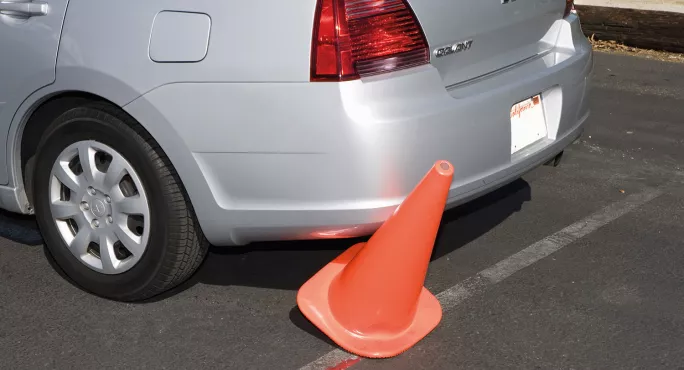I once knew someone who had happily passed all the major exams in her life so far. But then came her driving test. On being told she had failed, she asked the examiner, quite seriously, if he was sure.
He was. Very sure.
Reader, it took me years to recover and pluck up the courage to try again.
Failure is, however, a great teacher. It taught me that I am better at the theoretical than the practical. And, after my third attempt (which I am assured is often the charm), it taught me not to give up. But much more importantly, it taught me humility.
We are all flawed. We are human. Failing, making mistakes and getting things wrong, should be accepted as part of life.
“Being wrong isn’t a bad thing like they teach you at school. It is an opportunity to learn something,” said Richard Feynman, the brilliant US theoretical physicist. He’d be getting absolutely slaughtered by keyboard warriors on Twitter if he were around today.
In our society, we have no truck with those we perceive to be wrong, we give no leeway for imperfection, there are no excuses; we have time only for perfection and we fetishise success, which is often presented as an airbrushed, varnished version of events. It is unachievable - but falling short is not tolerated.
This extends into our schools. A culture of hyperaccountability leads to an unhealthy push for that perfection that permeates through leadership, through teachers (it’s not good for them either) and down to students.
Failure is not an option
Out of school, young people know that they are going to be judged on their appearance. In school, they know that everything rests on their grades.
They are well aware that some subjects are harder than others. But they quickly learn not to take the risk and study a tough subject, enjoyable though it may be and no matter how good they may turn out to be at it, because they know it is more difficult to get the top grades.
Anyone who doesn’t measure up to these impossibly high standards set by schools and by society is cast aside. There are no gradients of success. It is black or white, all or nothing, Oxbridge or nowhere.
It is this type of perceived failure - “the insidiousness of a fast-moving, visual, consumeristic society, combined with a relentless exam and testing culture” that is “particularly toxic” for children, according to Tara Porter, a clinical psychologist at the Child and Adolescent Mental Health Services, Royal Free London NHS Trust. And these pressures can have devastating results (see our cover feature in this week’s magazine).
For some, of course, failure can spur them on to greater things; for others, it leads to total despair. Everyone is different. But there is no appetite and no time to pick up those children who have fallen down, dust them off and put them back on track.
Instead, we take our failures to deal with these problems in society and make them children’s failures, instead. We say that what today’s children need is more grit, that we need to toughen them up, to give them resilience to cope with all the crap we, as adults, are allowing life to throw at them.
If we want young people to take risks, to be brave and to sometimes fail, then adults must be braver still. It starts with them; they have to lead the way. They have to drive the agenda, to learn to say no to accountability, to Ofsted, to say the buck stops here with me and not pass the pressures down the line.
But most of all, we have to make schools safe places to take risks, to get things wrong, to learn from mistakes. Because, of course, the most important lesson to learn is that while we may sometimes fail, it doesn’t mean we will never succeed.
Ann Mroz is the editor of Tes




